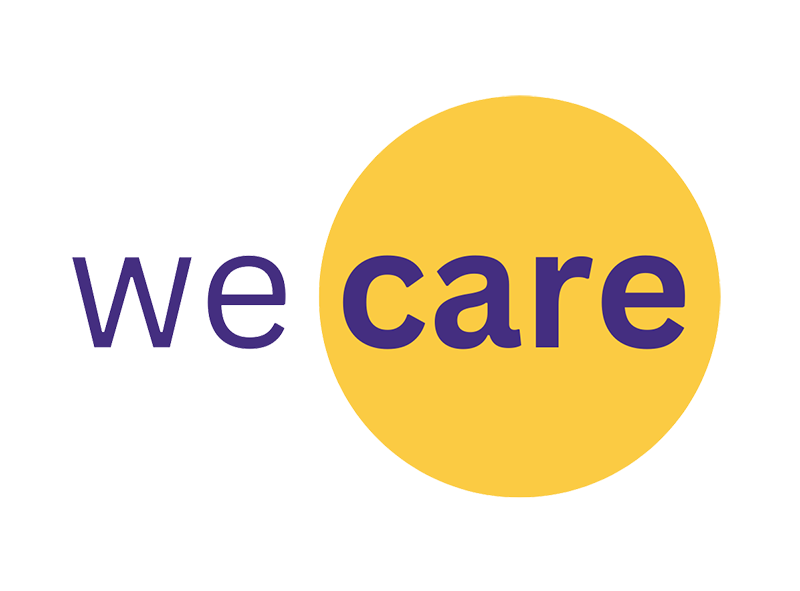
WECARE.NZ CAMPAIGN STORY
Cherie Story
My job is 24 hours a day, 7 days a week
In 2003, I became a mother to twins. My daughter, Holly, was healthy, and my son, Mitchell, was born with a rare disorder. For the first 2 years of his life Mitchell lived in Starship hospital, mostly in the Pediatric Intensive Care Unit (PICU) where he received one on one nursing care. Every day, either my husband or I would be at the hospital, sometimes together, sometimes apart, sometimes with his sister – trying hard to be a family. The hospital practiced what is called shared family care, where I would have the responsibility of doing the Mum jobs – changing nappies, bathing, cuddling, reading to him, making sure I was bonding and creating that unique loving attachment that parents and children can share. The doctors, nurses and therapists provided most of the medical cares.
When it was time to go home, I needed to upskill to provide cares such as changing a tracheostomy tube, operating a BiPap machine, handling bottled oxygen, putting in a Naso gastric tube for feeding, making and giving medications and operating a feeding pump. These were skills I would need at home to keep my son safe. These were not typical skills for a Mum, but necessary for us to be able to live in the community. It was 2006, and we were told our son was one of the most complex children to go home. One Doctor said, just 10 years earlier, it was unlikely he would have left the hospital. It was at that point that I realised, that I was now, not just the Mum, but an unpaid carer who was going to provide nursing level care without qualifications or pay. I did not hesitate to take these new responsibilities on, because going home was the right thing to do for our son and family. I was fortunate to have great family support, and a husband who was able to earn enough, so I could stay home. I also had the privilege of being educated enough to take on these responsibilities. But that didn’t mean it was easy.
The government provided some funding towards caregiver hours at home. At first, we had 10 hours care each night, which could be used to pay a caregiver a minimum wage to stay awake and monitor our son overnight. These caregivers usually came to our house having never cared for a child with complex needs. This meant not only was I providing daytime care, but I was also responsible for training caregivers. As parents, my husband and I took turns being on call overnight, often getting up to clean up vomit, fix equipment and often having to coax Mitchell back to sleep for long periods of time. We never questioned why we were doing this – it was simple, we loved our son. You do what you have to do. You don’t feel like you have a choice.
As both children grew up the gaps between them widened. Holly reached milestones and progressed through childhood and into adolescence. Through those years we continued to need to supervise our son 24/7, assist with all personal cares, such as dressing, feeding, bathing and toileting. We continued to receive funding and carer support and had carers at home most nights and during parts of the day, but never to the level that meant Mitchell could be supported without our constant care or supervision.
When Mitchell was 8 years old, we added Autism to his diagnosis, and at the same time we decided that we needed respite. It felt disloyal and wrong to say we needed a break from our child. I felt like a failure as a mother, that I could not do the job well enough. I felt a lot of pressure from myself to be able to do it all. Back then, I did not have any expectation that he should have full time support workers – we were his parents and that was our responsibility.
Right up until he was 14 years old, I accepted that even though Mitchell’s needs were so intense, we were doing the extra care that came with his disability because it was just part of our parenting journey. The cost of that belief was huge. It meant I was constantly sleep deprived, could not work full time, his sibling was always second in line, my health suffered greatly, and I had no time to keep relationships with friends. I became burnt out and isolated. His Dad too, was under huge pressure to be able to continue to provide enough income so that I didn’t need to work full time. I had also returned to part time and casual work, during school hours and on weekends, this way one of us could continue to be available on call during the day if Mitchell could not go to school or was sick.
Between the ages of 12 to 15 years old Mitchell underwent complicated staged surgeries, including multiple skin grafts. We added dressings and infection control to our growing list of cares. However, after 12 years of tracheostomy cares, he was finally decannulated (this is when the tracheostomy is removed). We heaved a huge sigh of relief. No more suctioning! We thought this might improve our flexibility of who could care for him sole charge. Unfortunately, that coincided with puberty and challenging medical cares were replaced with challenging and often aggressive behaviors to us, and sometimes, his carers. Finding support workers willing and capable of working with complex medical and behavioural needs is not easy, and our pool of workers gradually decreased.
By the time Mitchell turned 16, I had started to resent the load of extra work I needed to do to run Mitchell’s life, as I saw how friends with children the same age started to return to work, go out, be able to leave their kids at home unsupervised. I felt trapped in a time warp, with the realisation that my mothering experience would never transition to the next stage. Around this time, paid, resident family care became an option. As I was still unable to commit to work full-time, and unable to find caregivers for the hours we needed, I started paying myself for some of the hours worked via the Individualised Funding scheme. At first, I felt uncomfortable and guilty, thinking that it was my duty as a parent. But to be frank, I didn’t want to be a carer – paid or unpaid. I would rather have returned to working in a job of my choice. Being a family carer, paid or unpaid, should be able to be a choice – and I didn’t feel I had one.
When the Covid pandemic started in Mar 2020, we lost 2 of our long-term support workers and were unable to find suitable replacements. Phil, tried reducing his work hours, so that we could share the cares between us, and we were both working part-time hours outside the home and full-time hours at home. Far from ideal, as there are no breaks from caring duties when you are home all the time – your child does not differentiate that you have finished your shift. By 2022, we were even more burnt out than previously. After unsuccessfully renegotiating reduced hours with his employer of 25 years, Phil accepted an option to finish working and become the full-time main paid carer. With the reduction in income from being a professional to a carer, and the rising interest rates, we made the drastic decision to sell our home and moved into a rental a year later. The long-term monetary impact of that decision will not only affect our retirement, but Mitchell’s future if he outlives us.
From then, we tried unsuccessfully to recruit more support workers, but it is almost impossible in the current work climate. I acknowledge that enabling family members to be paid for caring was a huge step in the right direction – but it does not resolve the problem that supervision hours are not paid, or that you are on call 24/7, or that you live your life in a state of hypervigilance, or acknowledge that there are no days off, no substitutes for sick days or anyone to take your place so that you can have a holiday.
Not only do I not wish to be a carer any longer, I believe that my son, now an adult, should not have to be dependent on his parents for support to have a good life. At some point in a parenting journey, it is the natural rhythm of life that a child moves on to make their own choices, gains self-determination and should no longer have to have his Mum or Dad changing his bum. Besides, what happens when we get too old, or we die? Who will work for free then?
Unfortunately, due to social and disability policy that does not extend to practical supports and funding that is adequate to provide the care and support that complex needs children and adults have, parents – mostly mothers – are pushed to sacrifice their own human rights to ensure that their children receive theirs. I have been my son’s Mum and Carer for more than 7,000 days now. My job is 24 hours a day, 7 days a week. I would like to see change and action that reflects giving both the disabled person and their family a good life.
